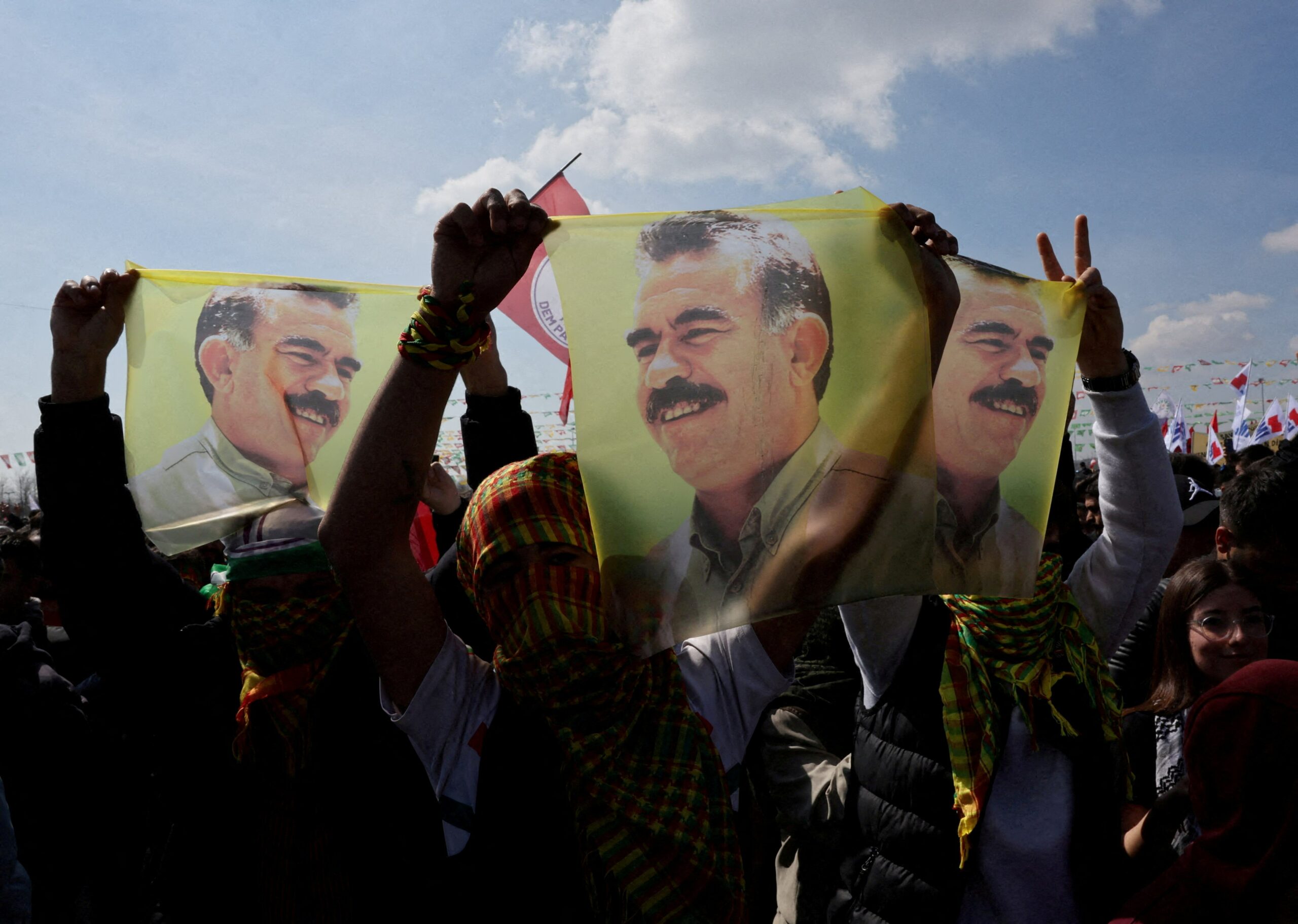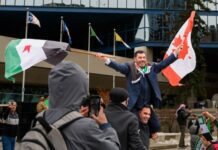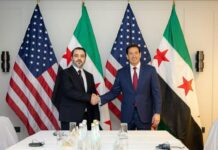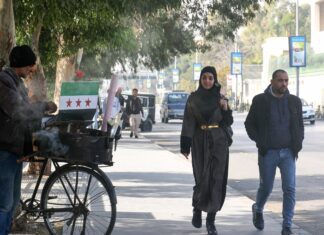
The Kurdish-led People’s Protection Units (YPG) and Women’s Protection Units (YPJ), core components of the Syrian Democratic Forces (SDF), remain central to discussions about Syria’s future. While the SDF claims to be instrumental in the fight against ISIS, its affiliation with the Kurdistan Workers’ Party (PKK) – a group designated as a terrorist organization by over a dozen countries and organizations including Turkey, the EU, NATO, US and UK – raises significant concerns.
Turkish-Syrian Cooperation
Syrian Foreign Minister Asaad al-Shabani and Turkish Foreign Minister Hakan Fidan held talks in Ankara on Wednesday, emphasizing their shared commitment to Syria’s territorial integrity. Both ministers underscored the need to prevent any division of Syrian land, with Fidan pledging Turkey’s support in combating terrorism and rebuilding Syrian institutions.
“We are ready to support the unity of Syrian territory and have extensive experience in combating terrorism,” Fidan said. He highlighted Turkey’s interest in fostering regional stability and facilitating the return of millions of displaced to their homes.
Al-Shabani mirrored these priorities, calling for the withdrawal of the SDF from northeastern Syria. “The presence of the Syrian Democratic Forces in the north and east of the country is no longer justified,” he said, urging a re-evaluation of institutions established during the past 14 years.
The Role of the SDF
The SDF, led by Mazloum Abdi, has been a critical partner for the US in the fight against ISIS. It has secured victories against the group and manages detention camps holding ISIS fighters and their families. Despite these achievements, the SDF’s connections to the PKK have drawn criticism from numerous countries, particularly Turkey.
During recent meetings with Kurdish leaders, Abdi expressed a willingness to negotiate with Syria’s new government. He suggested integrating self-administration institutions with central government structures while maintaining regional autonomy. This approach, Abdi argued, could address historical grievances and foster unity.
Abdi also proposed relinquishing control of oil fields in northeastern Syria, provided there is an equitable distribution of revenues across Syrian provinces. However, he stressed that the SDF does not intend to dissolve, framing the group’s continued presence as essential for regional stability and Kurdish rights.
Divergent Views on the SDF
While the SDF’s supporters highlight its contributions to combating ISIS, critics argue its presence undermines Syria’s sovereignty. Both al-Shabani and Fidan have called for the withdrawal of PKK-affiliated groups, viewing their departure as crucial for national unity and stability.
The United States, however, remains steadfast in its support for the SDF. Senator Marco Rubio, a nominee for US Secretary of State, emphasized the SDF’s pivotal role in detaining ISIS fighters and maintaining security in northeastern Syria. Rubio warned that abandoning the SDF could destabilize the region and undo counterterrorism efforts.
“The Kurds guard the prisons that hold ISIS fighters. Without them, the risk of a resurgence is significant,” Rubio stated during a Senate hearing.
Mediation & Future Prospects
Efforts to reconcile the SDF’s role with Syria’s broader objectives are ongoing. Kurdish leaders have engaged in discussions with Syrian officials, emphasizing the importance of peaceful dialogue and compromise. Mediation initiatives, such as those proposed by the Kurdistan Region of Iraq, seek to address Turkish concerns while preserving Kurdish governance structures.
However, tensions remain high. Turkey, supported by its NATO allies and others, views the PKK as a terrorist organization and has called for a complete withdrawal of PKK-linked groups from Syria. This geopolitical dynamic complicates efforts to integrate the SDF into a unified Syrian state.
A Path to Unity?
As Syria’s new administration navigates these challenges, the balance between maintaining national sovereignty, addressing regional autonomy, and ensuring security will determine the nation’s path forward. The SDF’s future role – whether as a stabilizing force or a point of contention – will be pivotal in shaping Syria’s ability to achieve lasting peace and stability.








